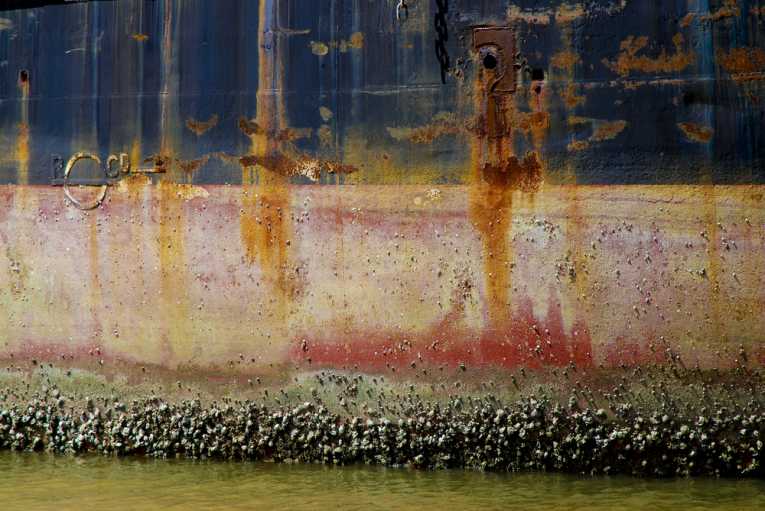If you have ever gone for a walk on the intertidal zone at low tide, you have surely noticed how slimy the rocks are. All sorts of little things grow on them, from seaweed and barnacles to even more diminutive critters like algae and bacteria.
The ocean is literally teeming with life - every drop of water is home to something, unless it is blighted by pollution. And just as they latch on to reefs and coastal rocks, these opportunistic organisms love to colonize the hulls of boats and ships. For them, it's a convenient place to settle and raise a family. For the owners and handlers of boats and ships, it's a real nuisance.
Marine organisms, as it turns out, don't agree very well with modern technology. The more barnacles and bacteria on the hull of a ship, for example, the more effort that ship will need to make in order to maintain its speed. That translates into additional fuel. Biological build-up can also damage sensors and other systems necessary for navigation or shipboard safety. Beyond the obvious costs of repair or replacement, damage to these parts can also endanger human lives.
Marine engineers have traditionally solved this problem by coating the underside of the hull with biocide-containing paints. The idea is simple: poison all these unwanted squatters on the outside of my ship. Unfortunately, the heavy metals and other toxic chemicals in these paints can also build up in the marine environment and end up killing innocent fish. We need better, more environmentally friendly alternatives, and marine researchers and engineers have recently begun to look for them.
A group of scientists from Duke University, for example, have drawn inspiration from natural mechanisms for self-cleaning and proofing. They are currently tinkering with materials science and nanotechnology in an attempt to create a synthetic coating that can discourage marine life from colonizing the ship, rather than killing it once it's already settled. Their efforts, however, are still on the testing phase and far from ready to be marketed. Even if they look very promising, we'll have to wait for quite a while and there's no real guarantee of success.
That is the main drawback of science when it comes to practical solutions. Unfortunately, short of going back to the premodern technology of ancient seafarers - which worked very well, don't get me wrong - we have no choice but to trust our modern scientists will eventually come up with something.










